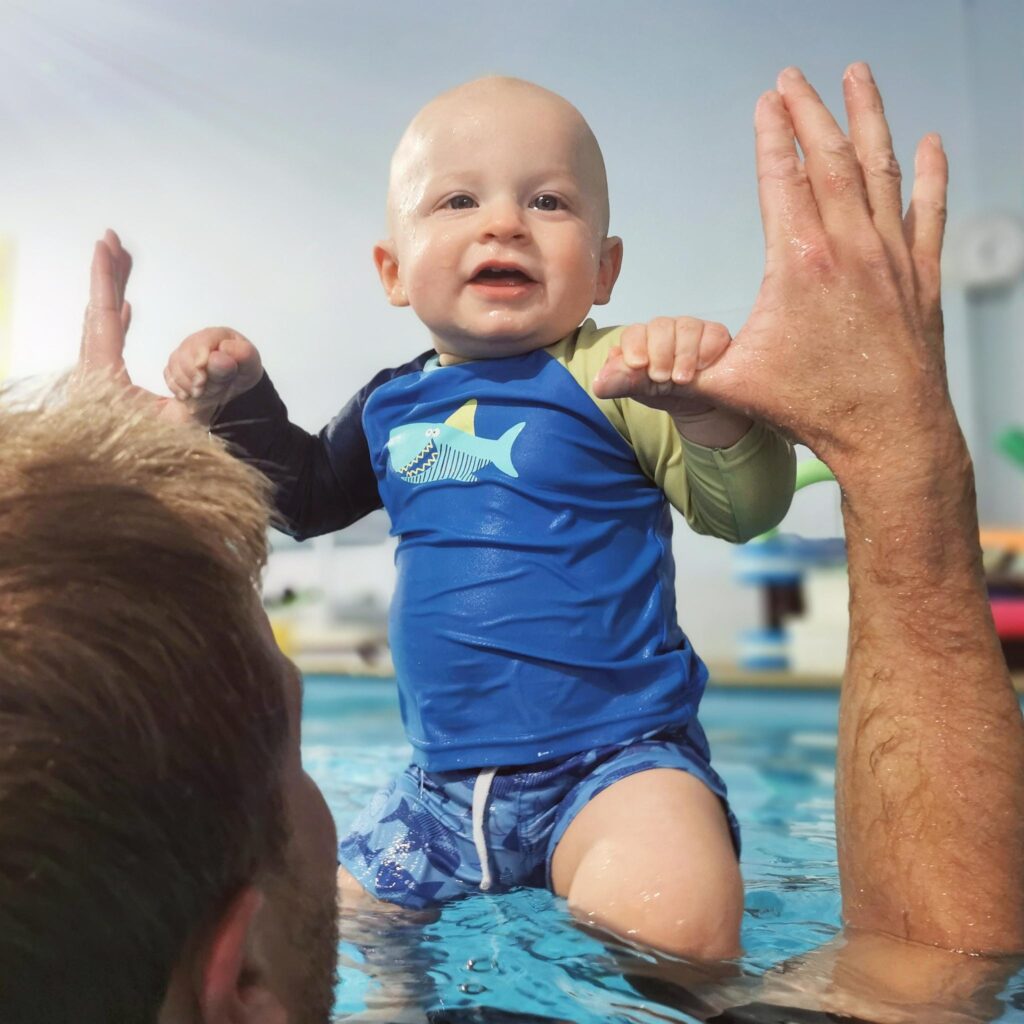Introducing swimming lessons to your child at the right age is a decision that can save lives and build life long essential skills. But when should you start swimming lessons? This guide answers all your questions, using current research and practical tips to help parents make more informed decisions.
Why Early Swimming Lessons Matter
Drowning is the leading cause of accidental death in children aged 0–4 years in Australia.
According to the Royal Life Saving Society‘s 2024 National Drowning Report:
- 15 children aged 0-4 years drowned in 2023/24, with 60% of these incidents caused by falls into water.
- Most drownings occur in familiar settings like backyard pools and bathtubs.
Starting swimming lessons early not only helps children develop water safety skills but also builds confidence and awareness that can prevent tragedies.
When to Start Swimming Lessons: A Breakdown by Age
Understanding the developmental milestones of your child helps determine the best time to begin swimming lessons.
4-6 Months
At this age, lessons focus on water familiarisation and parent-child bonding. Gentle activities like introducing Breath Control techniques such as Conditioning, splashing and floating teach babies to feel comfortable in water. The more exposure at this age the most familiarity (and comfort) the child has for the water.
1-3 Years
Toddlers can start learning basic skills like submersions, back and front floating, kicking, and blowing bubbles. These foundational lessons prepare them for more structured swimming techniques. The key at this age is to have as much parental involvement as possible. Not only does it build understanding of what skills and exercises that need to be done but it builds a stronger bond between parent and child and allows for a more positive learning experience.
3-5 Years
This is the prime time to start swimming lessons if your child hasn’t already. At this age, kids can grasp safety concepts and practice independent swimming. Most learn to swim programs may suggest parents exit the water during swimming lessons – if this is the case I want you to be conscious on how much practice time they have in the lesson. If the child is only swimming for a number of minutes you will find that not only will progress be slow but the child may become bored and uninterested.
You will find much more benefit in staying in the water with your child so that they have a one-on-one lesson or you will find more benefit in doing playtime and practice time outside of formal lessons.
Common Concerns About Starting Swimming Lessons
Is My Baby Too Young?
Many parents worry that starting early might overwhelm their baby. However, programs designed for infants focus on gentle, enjoyable activities rather than rigorous instruction. Although the softer approach may be beneficial singing songs for 30 minutes may not be your idea of an educational program. If you are unsure about the steps needed to build confidence in your baby ask questions.
What If My Child Is Scared of Water?
Fear of water is common but manageable. Gradual exposure in a shallow and safe environment helps children build trust and confidence. Introducing fun elements like songs and toys can make the experience enjoyable.
If your child has had a negative experience in the water whether this be inside or outside of formal lessons – it is now your job as a parent to reintroduce water familiarisation in shallow water where the child can rebuild their confidence.
Do not bring them into deeper water!
Should I Choose Private or Group Lessons?
-
- Private lessons offer personalised attention and faster progress.
-
- Group lessons encourage social interaction and teamwork.
Both options are effective. Ensure that whichever you do decide on, that you gather the knowledge and understanding of where the child is at and what needs to be done in order to progress.
How to Prepare Your Child for Swimming Lessons
-
- Introduce Water Play at Home: Let your child splash in the bathtub or wade in shallow water to build familiarity.
-
- Practice Safety First: Always supervise your child around water, even if they’ve had lessons.
- Set Realistic Expectations: Progress varies; celebrate small milestones to keep your child motivated.
External and Internal Resources for Parents
-
- Visit the Royal Life Saving Society for water safety tips.
-
- Explore Australian Swim Schools Association for local swim lesson options.
-
- Read our guide on Starting Lessons at 4 Months Checklist
Final Thoughts: When to Start Swimming Lessons
Knowing when to start swimming lessons can make a significant difference in your child’s life.
Starting as early as 4 months ensures they develop crucial water safety skills and confidence.
Choosing a swim school can be a big part of your learn to swim journey, take the time and trial a few different swim schools. Your ability to compare one to the other will allow you to see which one gives more value for both your time and money.

Book your child’s first free swimming lesson today at Breeswim.
Visit our Contact Page or Visit Breeswim for more information.

